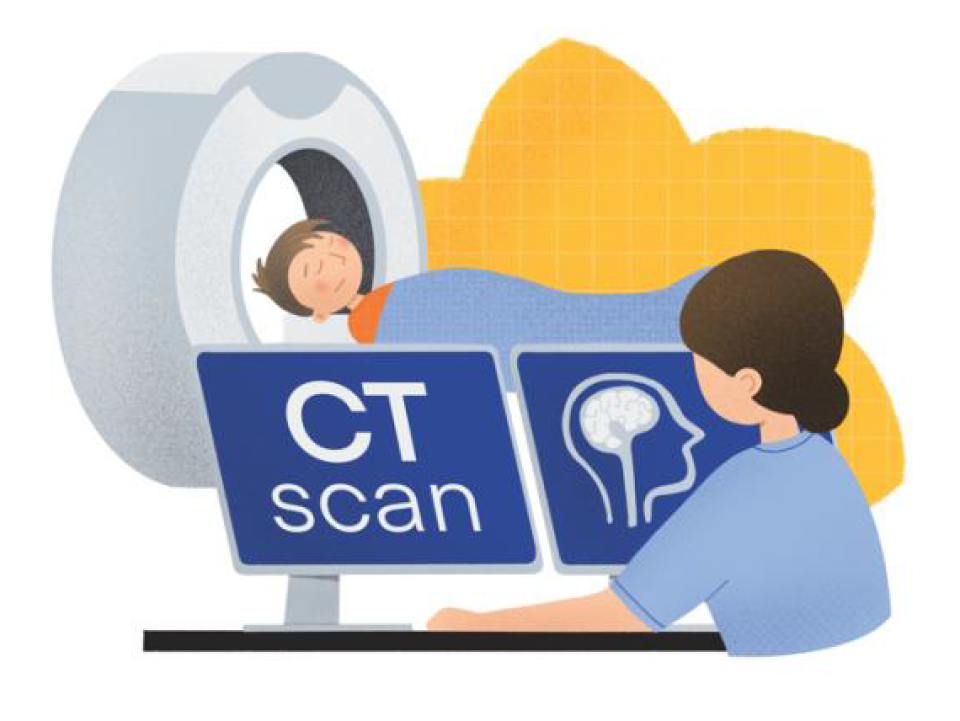CT scans for children

A CT scan takes X-rays from different angles to build a detailed, 3D picture of the location and size of any tumours. The picture is created by a computer linked to an X‐ray machine.
Before the test
For some CT scans your child may be asked to fast (not eat) for 4 hours beforehand. For other types they may need to swallow or have an injection of a special dye to give a clearer picture. Your child may need to have a very small tube (cannula) put into their hand so the dye can be injected. The area will be numbed with a local anaesthetic cream before the injection.
Let the radiographer know if your child is allergic to iodine or has asthma.
Younger children may be sedated or given a general anaesthetic before the test, as it’s important that they lie very still during the scan. If they have a general anaesthetic they will need to fast (not eat or drink) for a time before the scan.
During the test
Your child will lie on a table that passes through a large doughnut-shaped machine. The table will move forwards and backwards through scanner until all the pictures are taken.
Your child will be on their own in the room but the radiographer will be able to talk to them through an intercom if they are awake.
Does it hurt?
No, but lying very still can be a bit uncomfortable. Some people feel claustrophobic during the scan. The injection may make your child feel hot all over for a few minutes.
How long does it take?
The scan itself usually takes about 15-20 minutes. If your child is having the contrast medium (dye) they may have to wait an hour before having the test.
After the test
Your child should be able to go home straight after the scan. If your child has had a general anaesthetic they can go home once they have recovered from the anaesthetic.
Are there risks / side-effects?
- Allergic reaction
Some people are allergic to the contrast medium (dye). If your child feels weak, sweaty, breathless or unwell in any way tell the radiographer immediately. - Radiation
Being exposed to radiation slightly increases the risk of cancer in the future.
For more information
Phone
1800 200 700



